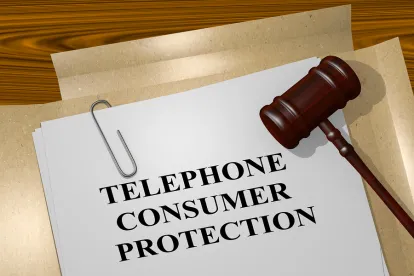In a decision released today, a three judge panel of the Seventh Circuit unanimously joined the growing list of courts to confirm that the “capacity to generate random or sequential numbers is necessary to the statutory definition” of what constitutes an “Automatic Telephone Dialing System” (“ATDS”) under the TCPA. The Seventh Circuit’s decision in Gadelhak v. AT&T Services, Inc., Case No. 19-1738, analyzes various interpretations of the ATDS definition, before ultimately reaching the same conclusion arrived at by the Third Circuit in Dominguez v. Yahoo, Inc. and, more recently, by the Eleventh Circuit in Glasser v. Hilton Grand Vacations Co., LLC.
In its decision today, the Seventh Circuit focused on the intended meaning of the ATDS definition set in the appropriate historical context of the Act’s adoption in 1991. The Opinion describes the relevant issue thusly:
At the time that the Telephone Consumer Protection Act was passed, telemarketers primarily used systems that randomly generated numbers and dialed them, and everyone agrees that such systems meet the statutory definition. But that’s not how AT&T’s customer feedback tool works. The system, like others commonly used today, pulls and dials numbers from an existing database of customers rather than randomly generating them. . . . Determining whether such systems meet the statutory definition has forced courts to confront an awkwardness in the statutory language that apparently didn’t matter much when the statute was enacted: it’s not obvious what the phrase “using a random or sequential number generator” modifies. The answer to that question dictates whether the definition captures only the technology that predominated in 1991 or is broad enough to encompass some of the modern, database‐focused systems.
Noting that it had not had occasion to analyze the statute since the D.C. Circuit struck down the FCC’s 2015 interpretation of the ATDS definition in ACA International v. FCC, the Seventh Circuit determined that its duty was to interpret the statute’s text “as though for the first time.” Therefore, it embarked on an effort to arrive at the most reasoned interpretation of the ATDS definition. While it articulated four possible interpretations, the Court ultimately concludes that the best interpretation is that “the phrase ‘using a random or sequential number generator’ [modifies] both store and produce, which would mean that a device is capable of performing at least one of those functions using a random or sequential number generator to qualify as an ‘automatic telephone dialing system.’”
The Court also took up the question of how a “number generator” could be used to “store” telephone numbers. It explained that “[t]he record before the FCC reveals that at the time of the statute’s enactment, devices existed with the capacity to generate random numbers and then store them in a file for a significant time before selecting them for dialing.” Thus, the equipment that was prevalent in 1991 when the TCPA was adopted, had the capacity to generate random or sequential numbers and then either dial them immediately or store them for a period of time before they were dialed, which shed light on the intended meaning of the ATDS definition adopted by Congress.
The decision expressly rejects the contrary conclusion reached by the Ninth Circuit in Marks v. Crunch San Diego, LLC, and advocated by the Plaintiff in this case, which adopted a much broader interpretation. According to the Seventh Circuit, this “ungrammatical interpretation,” would result in a “significant judicial rewrite” with “far-reaching consequences”. According to the Court, “it would create liability for every text message sent from an iPhone” and expose everyday Americans to potential liability. This, says the Seventh Circuit, would be an “outlier within the statutory scheme.”



 />i
/>i

